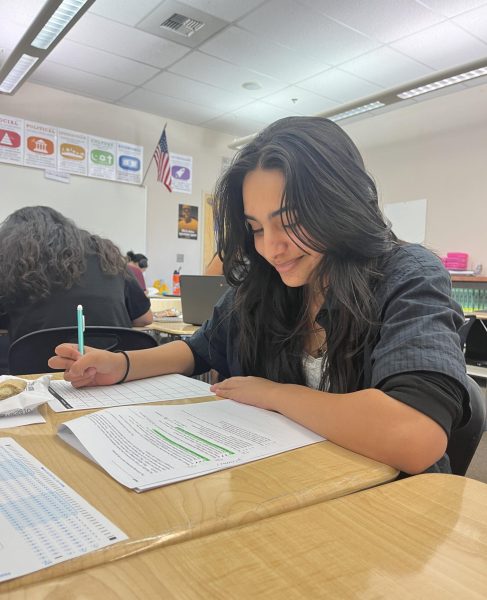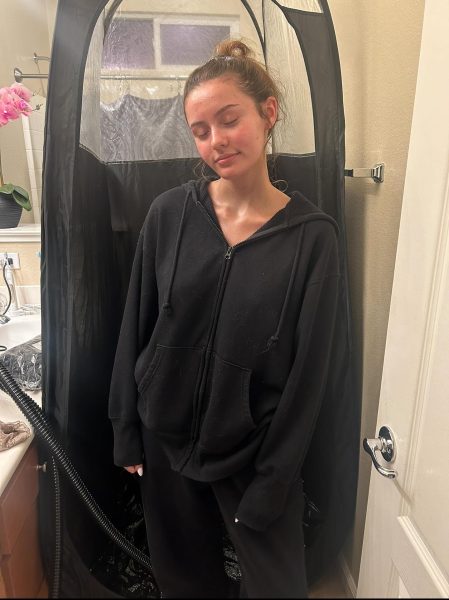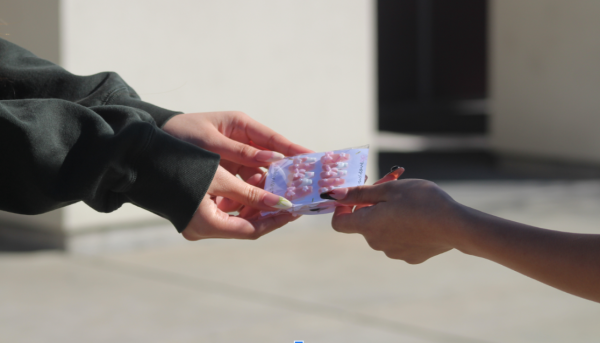Foreign exchange student Elise Nippert reveals her experiences in America and how they differ in France
Learning about a friend’s exchange trip, Elise Nippert decided she wanted to give it a try.
Through the program, students are allowed to choose the country that they’d like to move to but not the state. It is a random selection between Hawaii, Florida, California or Alaska.
“I think what stood out to me [about the program] was the fact that you get to live in a different country while you’re still a teenager. Meaning that I don’t have to worry about all the responsibilities that I would have as an adult but I still get the full experience of living in a [different] country,” Nippert said.
Nippert said living on her own without the comfort of her family has taught her new things and how to be more responsible.
“Because I’m alone here without my parents or anything, I’ve learned to kind of take things into my own hands and manage stuff that you usually don’t have to manage at 16 years old,” Nippert said. “You have to buy everything yourself. You’re really on your own. I really learned within the first month I got here because I spent a lot of money since I didn’t know how to [manage it].”
She explains the differences she has experienced between living in France and America as well as in herself.
“I’ve definitely noticed that I have changed in terms of anxiety, especially social anxiety,” Nippert said.
She has experienced many culture shocks such as the way Americans speak, the reality behind American stereotypes, and even the way Americans dress. She is still adapting to the way Americans live their lives since it heavily differs from French culture.
“In France, we have a special way of addressing elders. For example, We have a ‘you’ for elders and you don’t have it here. So every time I say ‘bless you’ or ‘thank you,’ I feel like I’m being really impolite, but I’m not. Also tipping, we don’t tip,” Nippert said.’
She is also amazed to see the variety in classes offered here. In her French school, they do not offer classes like culinary because they are more academically oriented classes.
In France, Nippert experienced 10-hour long school days from 8 a.m. to 6 p.m., taking eight or nine classes a day. During her time here, Nippert said she has made a beautiful relationship with her host sibling, Mina Daggett. They have become “best friends,” and Nippert said having multiple siblings is a new experience for her.
“It’s just really special because I got her as like she’s my sister now,” Nippert said.
Nippert recommends taking an exchange trip to anyone who has been thinking about it.
Before making the decision, she wants readers to consider: “[Is it] worth it for you? Is it worth it to miss out on a year in your country? Is it worth it to be homesick sometimes, to be away from everyone?”
If the answer to these questions is “yes” and it is understood that these issues will eventually be faced, she is confident that moving to the exchange location will be no problem.
From her experience, the switch from the French to American school system is easy because of how much harder the French school system is. Although she’s taken her graduation requirements as a junior here, the credits she’s earned here are non transferable to her junior year in France.
While she will have to retake 11th grade there, she has had no regrets and is glad she got the opportunity to experience this.
Nippert said she loves being an exchange student and it has changed her so much.
Nippert said, “I really love being an exchange student, it’s hard sometimes especially with talking in English when it’s not my first language or being away from everything I know, but I think it’s definitely worth it.”
by ALEXIS DASHNYAM & JEZLYN SOTELO










